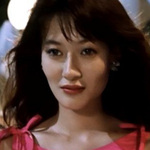
Pauline Chan
Pauline Chan was a Miss Asia contestant who first broke into show business via a mah jongg show on ATV, whose success led to film roles for her. Unlike most pageant contestants or models turned actors, Chan was willing to do nude scenes, and so quickly became a favorite of producers to use in Category III movies. Chan would later say in interviews that she did not enjoy doing sex scenes at all, but did them because of her pushy mother, who wanted to make money off of her career.
Chan did try to try and do more mainstream roles, most notably with an appearance in Stephen Chow's "From Beijing with Love", but producers for those types of movies usually weren't willing to hire a woman who had done full-on sex scenes. Chan's displeasure at being typecast as the "queen of Category III" soon led to depression and erratic public outbursts.
In 2002, shortly after the birth of her son, Chan took her own life by jumping from the window of her apartment. The local tabloids said it was because the father of her child, a rich local businessman, wouldn't acknowledge the offspring, but more accurate reports stated it was because of a severe case of post-partum depression.
Notable movies: From Beijing with Love, Erotic Ghost Story III, Slave of the Sword
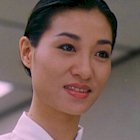
Pauline Wong
Born in 1962, Pauline Wong dropped out of school when she was a teenager and moved to Canada to try her hand at modeling. In 1982, she moved back to Hong Kong to become an actor and quickly found success, winning a Hong Kong Film Award in 1985 for her work in "Love with the Perfect Stranger". Over the next decade, Wong became one of the most active actors in Hong Kong, usually working in movies with supernatural elements to them, but also becoming a favorite of producers to use in Triad movies.
She also made appearances in several Category III films, most notably "Her Vengeance". The movie failed to make an impact at the box office, but has since been recognized by critics and fans as a classic in the female revenge genre. For reasons that are still not known, Wong made her exit from the HK film world in 1995 and hasn't been heard from since.
Notable movies: Mr. Vampire, Her Vengeance, Web of Deception
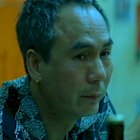
Peter Ngor
Peter Ngor is primarily known as a cinematographer, having lensed several dozen pictures since the late 1970's. But he has dabbled in just about every aspect of Hong Kong film-making, including writing, directing, and acting. His film roles are usually small supporting bits, where he plays one of the villain's henchmen.
Notable movies: Dirty Ho, My Young Auntie, Sex and Zen
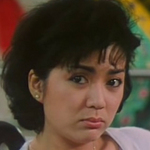
Petrina Fung (aka Bo-Bo Fung)
Petrina Fung (probably better known by her Chinese name, Bo-Bo) was a huge child star in Hong Kong during the 1960's. During the period, the "Shirley Temple of Hong Kong" appeared in over 100 movies before getting married and then retiring in the early 1970's.
After she got divorced in the mid-1980's, Fung returned to films and once again found herself a popular actor, going as far as to win two Hong Kong Film Awards in 1993 and 1994 for her work on "92 Legendary La Rose Noire" and "C'est la Vie Mon Cheri". In 1995, Fung announced that she was once again going to retire, and looks to have kept that promise, though rumors of her making another comeback still pop up from time to time.
It should be noted that many times in HK movies when you see a character (especially a young girl) named "Bo Bo", it is a tribute to Fung, who is still much beloved by the local audience.
Notable movies: 92 Legendary La Rose Noire, C'est la Vie Mon Cheri, Eighth Happiness
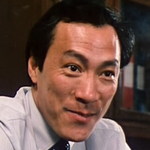
Phillip Chan
Chances are if you're watching a cops and robbers flick from the 1980's, Phillip Chan will be in it. And that's probably for good reason, since Chan was actually a police officer. After working in the force for fifteeen years, Chan attained the high rank of Superintendent in the presitigous CID division, and was approached by director Leong Po-Chi in 1976 to be a consultant on the movie "Jumping Ash".
Chan quickly developed a love for the movie business, and went so far as to re-write the script. "Jumping Ash", with its' gritty and more realistic look at the life of policemen, would go on to become a huge hit and paved the way for the "new wave" crime movies done by directors like Ringo Lam and John Woo, who were also highly influenced by 1984's "Long Arm of the Law", another script which Chan penned.
After the success of "Jumping Ash", Chan quit the police force and tried his hand at most every facet of the movie industry, from writing to producing to directing, and even composing soundtracks. Of course though, he is best known for his on-screen work, probably most notably as Chow Yun-Fat's beleaguered supervisor in "Hard Boiled". Chan's fluency in English also got him onto a few western productions, such as the Jean-Claude movie "Bloodsport" and even (at least according to the IMDB) a few episodes of the TV show "Dallas".
In 1990, Chan announced that he would no longer be writing or directing movies, and after 1994, he seems to have retired from acting as well. These days, Chan's role in Hong Kong movies has been limited to that of an executive producer, with the occasional production credited to him popping up every now and again.
Notable movies: Hard Boiled, Police Story III, Winners and Sinners
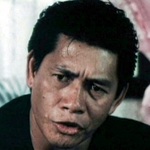
Phillip Ko (aka Phillip Kao)
One of the most prostigious directors of "girls with guns" films, Phillip Ko got his start by working on a stuntman on Shaw Brothers productions in the 1970's. Ko appeared in many Shaw films in small roles, where his looks usually got him cast as on of the main villain's henchmen. During the 1980's, he moved on to becoming an action director, and then in the 1990's, began taking the director's chair on most of his sets.
Since many of Ko's films were linked with notorious B-movie producer/director Godfrey Ho, his work has gained a reputation of being cheap and shoddy, which frankly most of it was. But even though his films were usually shot in the Philippines on next to no budget, Ko still produced some very solid stunt/action scenes, with most of his best stuff involving his ex-wife Yukari Oshima.
Notable movies: Millionaire's Express, Magic Crystal, Eastern Condors
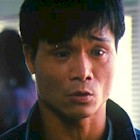
Phillip Kwok
For fans of old-school kung fu movies, one of the true icons in the genre is Phillip Kwok. Born in 1951 in Taiwan, Kwok studied Peking Opera as a teenager, which he excelled at, even though he lost a couple of fingers in an accident as a child. Like many opera performers, Kwok moved on to kung fu films as audiences grew tired of traditional opera in the 1970's, making his debut with 1975's "Boxer Rebellion". This role impressed Lau Kar Leung so much that he personally asked Kwok to appear in "Marco Polo", which led to roles in several popular Shaw Brothers pictures.
In 1978, the legendary director Chang Cheh was looking for unconventional actors to star in "The Five Deadly Venoms", and Lau Kar Leung recommended Kwok to him. Kwok's role of Lizard would go on to become one of the most seminal in Hong Kong movie history, whose impact continues to this day, as evidenced by such things as the character of Reptile in the popular "Mortal Kombat" video games.
Along with the other "venoms", Kwok found himself appearing in a string of successful projects, both as an actor and action director. But as the popularity of kung fu movies waned in the early 1980's, Kwok found himself relegated to doing small parts in TV shows. However, as the old saying goes, when one door closes, another one opens, and as the Triad genre gained popularity in the 1980's, Kwok once again found himself in demand, both in front of and behind the camera, where he had now gained a reputation as one of the best action directors in the business.
In 1992, Kwok played Mad Dog in the John Woo classic shoot-em-up "Hard Boiled", and gained a new legion of fans from the next generation. Interestingly, Kwok was originally only slated to help choreograph some of the fight scenes, but Woo thought the film's main villain (played by Anthony Wong) was too weak and wanted a "real" tough guy to be Chow Yun-Fat's nemesis. The international success of "Hard Boiled" led to Kwok's inclusion on a few western productions, most notably on the James Bond film "Tomorrow Never Dies".
Currently, Kwok is semi-retired, but still makes the occasional film, both in the capacity of actor and action director.
Notable movies: Hard Boiled, The Five Deadly Venoms, The Big Heat

Pinky Cheung
As you might expect from someone voted "most perfect body" in the Miss Asia pageant, most of Pinky Cheung's roles have been in the exploitation category, with many of these films (not surprisingly) having Wong Jing involved with them in some way. She is also a favorite in the ghost/horror genre. Despite her name and cutie-pie looks, she usually plays very tough characters, which has gained her many fans, especially in the west. Pinky's output has slowed down over the last few years after doing as many as eight films a year, but she has managed to keep working in an industry where many female actors often leave after a year or two.
Notable movies: Young and Dangerous 4, Raped by an Angel 3, Horoscope II
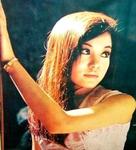
Polly Kuan (aka Polly Shang-Kwan)
Born in Taiwan in 1949, Polly Kuan, along with Angela Mao, was one of the top female kung fu stars of the 1960's and 70's. Amazingly, given her output onscreen, Kuan didn't start studying martial arts until she joined the United Film Corporation production company in 1966. Her first role as Chu Huei in "Dragon Gate Inn" is widely considered one of the finest in all of martial arts cinema, male or female.
Over the next decade, Kuan appeared in over sixty films, picked up several black belts (in taekwando, karate, and judo) along the way, and appeared in several classic films, gaining the nickname of "the phoenix". As the popularity of kung fu movies died down in the early 1980's, Kuan left the industry and seems content to enjoy retirement.
Notable movies: Dragon Gate Inn, 18 Bronzemen, The Shaolin Kids
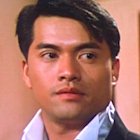
Ray Lui
When he was tweleve, Ray Lui moved with his father from Vietnam to Hong Kong and began taking acting classes. As he became older, Lui was picked up by the TVB studio, and appeared in a series of successful TV series, most notably "The Bund", where he co-starred along a young Chow Yun-Fat. However, success in the film world evaded Lui until 1991's "To Be Number 1", a docu-drama based on a real gangster wrapped around the structure of the movie "Scarface". The role shot up Lui to being one of Hong Kong's top actors, especially in docu-dramas, which were becoming very popular.
Lui seems to have carried the playboy reputation of some of the characters he plays to the offscreen realm; his dalliances with the ladies have long been popular tabloid fodder. Desipte the negative press, Lui has remained a fixture in Hong Kong. Over the past few years, Lui has concentrated more on television work, but recently made a comeback to the big screen via an appearance in 2007's "Flash Point".
Notable movies: To Be No. 1, Flash Point, God of Gamblers 3
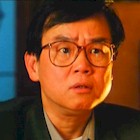
Raymond Wong Pak-Ming
An extremely prolific facet of the Hong Kong movie industry, Wong Pak-Ming has been involved in over 200 productions since he started working on films (after a small stint on radio and television) in the late 1970's. He is best known for being one of the heads of the Cinema City production company, which was responsible for many of the influential "new wave" movies of the 1980's, such as "A Better Tomorrow" and "Aces Go Places".
Raymond's films have been likened to those of Wong Jing, since they often feature low-brow humor buoyed by bevies of beatutiful women. Like Jing, Raymond also casts himself in many of his own productions as a character who is a bit of a lech, such as "Isle of Fantasy", where Rayomnd plays a man stranded on an island with five gorgeous ladies. In another parallel to Jing's career, Raymond has shown that he is capable of creating more serious movies as well, like "The Phantom Lover".
Despite all of his critics, Wong is still working on films in several fashions, wether as a producer, writer, director, or actor, and doesn't look to be slowing down anytime soon. His page on the HKMDB even lists a few projects for 2009.
Notable movies: All's Well End's Well, Aces Go Places, Eighth Happiness
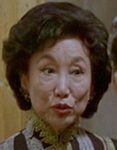
Rebecca Pan Di-Hua
Rebecca Pan has only appeared in a handful of films through the years, but her impact on Hong Kong pop culture cannot be underestimated. Known as the "queen of Cantopop", Pan started singing in the 1950's. Her ability to perform in multiple languages made her a popular fixture on the tourist nightclub circuit, while her soulful rendition of classic Chinese songs made her a hit with local audiences.
She produced the first pop musical film made in Hong Kong, 1972's "Madam White Snake", which would go on to influence several generations of stars, with seemingly everyone from Sam Hui to the Twins owing a debt of gratitude to her. Pan didn't start acting until the late 1980's, with her most visible roles being in Wong Kar-Wai pictures. Wong credits her music as being a huge inspiration for his movies, with the genesis of the beautifully lonely tone of many of his films coming from her albums.
Notable movies: Days of Being Wild, Flowers of Shanghai, In the Mood for Love
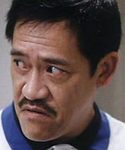
Richard Ng
A fixture of 1980's comedies, Richard Ng was born in Hong Kong, but moved to London at a young age. After completing his education and not being able to find any steady work, Ng moved back to Hong Kong in the 1970's, where he became a popular actor on television via his appearances on Michael Hui's variety show. Ng parlayed that momentum into the film world, where he appeared in two of the 1980's most popular series of movies, the "Pom Pom" and "Lucky Stars" pictures.
Gaining the nickname of "shoehorn" because of his big chin, Ng often played some sort of shifty conman, which fit his manic rubber-faced mannerisms perfectly. Ng got so good at playing the character type that he perhaps became more notable for appearing in cameos or small roles where he parodies that sort of person, since seemingly every comedic production during the period seemed to have to have that sort of guy in it.
Even with the change in the local audience's comedic tastes during the late 1980's and early 1990's as witnessed by the rise in Stephen Chow's popularity, Ng still found himself working steadily over the next decade. After the handover of Hong Kong from Britain to China in 1997, Ng moved to Singapore, but still manages to appear in a Hong Kong movie about every year or so.
Notable movies: The Private Eyes, Winners and Sinners, Millionaire's Express
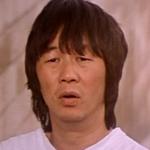
Ricky Hui
The middle brother of Michael and Sam Hui, Ricky was a fairly non-descript actor who worked on a few Shaw Brothers and Golden Harvest productions before becoming a star along with his brothers in 1976's "The Private Eyes". His persona in that film of a good-natured (but somewhat dim-witted) man would be the prototype of most of his roles to follow.
Of course, Ricky is best known for the movies he did with his brothers, but he also found success in the early "street people" comedies of John Woo like "Money Crazy" and in the supernatural realm with pictures such as "Mr. Vampire". Perhaps because he never attained the level of stardom of his brothers, Ricky left the industry in the early 1990's, with only a few roles to his credit since then.
Notable movies: The Private Eyes, Aces Go Places, Mr. Vampire
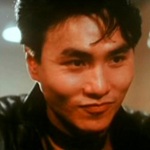
Robin Shou
Best known for portraying Liu Kang in the film adaptations of the popular video game "Mortal Kombat", Robin Shou was born in Hong Kong in 1960. Shou's family moved to the US when he was ten. Growing up poor, Shou took solace in the local Chinatown theatres, specifically the films of Bruce Lee, which eventually inspired him to learn wushu. After several years, Shou became a competition champion and member of the national team.
However, his family didn't see martial arts as a viable way for Shou to earn a living and pushed him into going to college. Shou graduated with a degree in engineering and found a good job, but soon found himself becoming bored, and so decided to take a long vacation to his native Hong Kong. While there, a producer approached Shou and asked him if he wanted to be in movies, to which the restless youth immediately agreed.
He appeared in a string of movies, but most of these were low-budget filler, and Shou quickly grew tired of the high-risk, low-pay world of HK B-movies. Heading back to America, Shou planned to start his own business, but a friend pointed out an audition for the role of Liu Kang. Shou appreciated the bigger budgets and safer conditions of US productions, but quickly became tired of the stereotypical roles he was being offered, so he decided to make his own movies.
During the filming of his debut "Lost Time", Shou took note of the camraderie of the stuntmen on-set, and decided to make a documentary about them. This would become "Red Trousers", which was released to critical acclaim in 2003. Since then, Shou has been biding his time and been more selective in the projects he takes on, but looks to be in "the game" for the long haul.
Notable movies: Mortal Kombat, Red Trousers, In the Line of Duty III
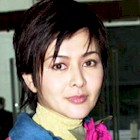
Rosamund Kwan
Rosamund Kwan is the daughter of Kwan Shan, who was a hugely popular actor in the 1960's, and Cheung Bing-Sai, who was a big star in her own right, so perhaps it was inevitable that she would follow in her family's footsteps. But, despite her normally tough and head-strong characters on-screen, Kwan is a quiet and shy woman who didn't enjoy acting at first, and actually retired for a bit after becoming married.
The marriage didn't last long, and even though acting wasn't the most palatable option for Kwan, she decided to return to the profession, since it seemed to be the most viable for a single woman in her situation. Her output hasn't been as large as other actresses of her age, but the selectiveness has seemingly led to a better output.
Most of her films have had her alongside some of the biggest leading men in Hong Kong, wether it be Jackie Chan ("Armour of God"), Andy Lau ("Casino Raiders", after which she was romantically linked to Lau), or, in her best-known role, alongside Jet Li in the "Once Upon a Time in China" films. She has even made a western-produced movie with 2001's "Big Shot's Funeral", and seems to be slowly but surely becoming one of the true icons in modern Hong Kong cinema.
Notable movies: Once Upon a Time in China, Armour of God, Swordsman II
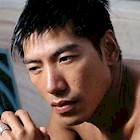
Roy Cheung
Roy Cheung seems to be on the speed-dial of every producer of crime movies in Hong Kong, because his sneering mug (usually with a cigarette planted firmly in his mouth) has been a fixture in the genre for over twenty years. He brings a real sense of quiet but determined strength to his roles, which from most accounts is how his off-screen personality is.
Cheung began his career in modeling and had a few small roles under his belt when director Ringo Lam took notice of Cheung's "authentic" look (some have said this is due to Cheung's running with the Triads as a youth, but these stories have never been substantiated) and cast him in "Prison on Fire".
Since then, Cheung has been ubiquiteous with Triad films, where his intense performances earned him many fans and several Hong Kong Film Award nominations. In recent years with pictures like "The Mission", Cheung has been allowed to bring a bit of a softer and more humorous side to his roles, but still remains one of the best "tough guy" actors working anywhere in the world.
Notable movies: Prison on Fire, The Mission, Beast Cops
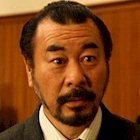
Roy Chiao
Roy Chiao was born in Shanghai in 1927, but moved with his family to Seattle soon after. Upon graduating college in the 1940's, he joined the US army, becoming an interpreter. Chiao eventually rose to the rank of captain and was involved in high-level peace talks between the US and China before resigning due to harassment from senator Joe McCarthy's anti-Communist witch hunts of the 1950's.
Chiao then moved to Hong Kong, where he found work in the film industry because of his friendship with Pai Kuang, a popular Mainland actor of the time. His very masculine acting style gained Chiao the nickname of "the lion", and he found great success during the next two decades.
As Hong Kong studios changed their emphasis to producing more kung fu films in the 1970's, Chiao's style fit right in with the "jiang hu" (brotherhood) themes many of the movies espoused, and he became a favorite of many notable directors, such as King Hu, John Woo, and Sammo Hung.
Chiao's fluency in English also gained him roles in western productions, where he starred with a variety of people, from Orson Welles ("Ferry to Hong Kong") to Harrison Ford ("Indiana Jones and the Temple of Doom") to Jean-Claude Van Damme ("Bloodsport").
Due to his advancing age and several heart attacks, most of Chiao's roles in the 1980's and 1990's saw him going into more of a supporting mode, but he still found great success and acclaim, culminating in 1995 with a Hong Kong Film Award for "Summer Snow".
During his later years, Chiao became a devout Christian and very concerned with helping out the poor in Hong Kong, so he established Artist's Home, a charity dedicated to helping the homeless. In 1999, shortly after completing his last film, "Sometimes Miracles Do Happen", Chiao returned to Seattle and passed away of natural causes soon after.
Notable movies: A Touch of Zen, Enter the Dragon, Game of Death
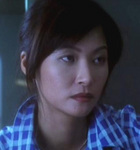
Ruby Wong
Ruby Wong is one of acclaimed director Johnnie To's stable of actors, which is probably no coincidence since To is also her manager. Wong's roles usually cast her as a very tough woman. This seems to not to be too far from her real personality, as supposedly, she does all of her own stunts, even after getitng fairly seriously injured on the set of To's "Lifeline".
Notable movies: PTU, Running Out of Time, Expect the Unexpected

Sally Yeh
Best known to westerners as Jenny from John Woo's seminal film "The Killer", Sally Yeh was born in 1961 in Taiwan. Her family moved to Canada when she was a small child, but after graduating high school, Yeh went back to Taiwan with the dream of becoming a singer. She initially didn't find success in the music world, instead appearing in a few B-level horror films. But, in a twist straight out of a movie, a record producer heard her singing in a chicken market one day and signed her to a contract on the spot.
Yeh quickly became arguably the biggest pop star of the time, and more prestigious film roles soon followed, most notably 1986's "Peking Opera Blues" and the aforementioned "The Killer", both of which are regarded by many as the pinnacle of Hong Kong cinema's "golden age". Yeh retired from acting in 1991, instead concentrating on her singing career, where her shows (which she often performs with her husband, actor/singer George Lam) continue to be extremely popular with the locals.
Notable movies: The Killer, Peking Opera Blues, I Love Maria